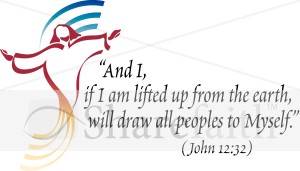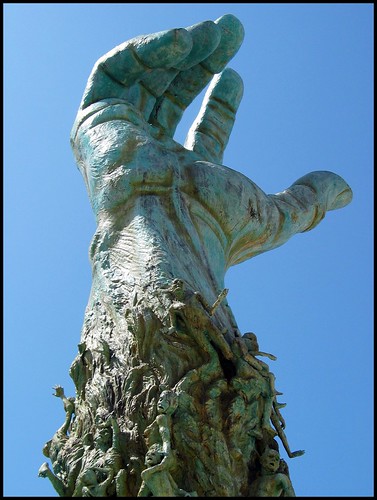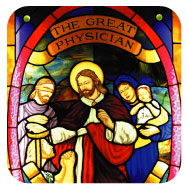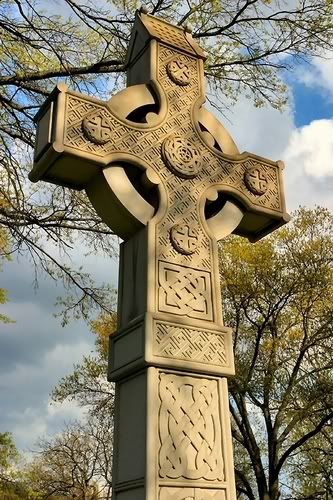
Mark 14:1-15:47
The Plot to Kill Jesus
It was two days before the Passover and the festival of Unleavened Bread. The chief priests and the scribes were looking for a way to arrest Jesus by stealth and kill him; for they said, ‘Not during the festival, or there may be a riot among the people.’
The Anointing at Bethany
While he was at Bethany in the house of Simon the leper, as he sat at the table, a woman came with an alabaster jar of very costly ointment of nard, and she broke open the jar and poured the ointment on his head. But some were there who said to one another in anger, ‘Why was the ointment wasted in this way? For this ointment could have been sold for more than three hundred denarii, and the money given to the poor.’ And they scolded her. But Jesus said, ‘Let her alone; why do you trouble her? She has performed a good service for me. For you always have the poor with you, and you can show kindness to them whenever you wish; but you will not always have me. She has done what she could; she has anointed my body beforehand for its burial. Truly I tell you, wherever the good news is proclaimed in the whole world, what she has done will be told in remembrance of her.’
Judas Agrees to Betray Jesus
Then Judas Iscariot, who was one of the twelve, went to the chief priests in order to betray him to them. When they heard it, they were greatly pleased, and promised to give him money. So he began to look for an opportunity to betray him.
The Passover with the Disciples
On the first day of Unleavened Bread, when the Passover lamb is sacrificed, his disciples said to him, ‘Where do you want us to go and make the preparations for you to eat the Passover?’ So he sent two of his disciples, saying to them, ‘Go into the city, and a man carrying a jar of water will meet you; follow him, and wherever he enters, say to the owner of the house, “The Teacher asks, Where is my guest room where I may eat the Passover with my disciples?” He will show you a large room upstairs, furnished and ready. Make preparations for us there.’ So the disciples set out and went to the city, and found everything as he had told them; and they prepared the Passover meal.
When it was evening, he came with the twelve. And when they had taken their places and were eating, Jesus said, ‘Truly I tell you, one of you will betray me, one who is eating with me.’ They began to be distressed and to say to him one after another, ‘Surely, not I?’ He said to them, ‘It is one of the twelve, one who is dipping bread into the bowl with me. For the Son of Man goes as it is written of him, but woe to that one by whom the Son of Man is betrayed! It would have been better for that one not to have been born.’
The Institution of the Lord’s Supper
While they were eating, he took a loaf of bread, and after blessing it he broke it, gave it to them, and said, ‘Take; this is my body.’ Then he took a cup, and after giving thanks he gave it to them, and all of them drank from it. He said to them, ‘This is my blood of the covenant, which is poured out for many. Truly I tell you, I will never again drink of the fruit of the vine until that day when I drink it new in the kingdom of God.’
Peter’s Denial Foretold
When they had sung the hymn, they went out to the Mount of Olives. And Jesus said to them, ‘You will all become deserters; for it is written,
“I will strike the shepherd,
and the sheep will be scattered.”
But after I am raised up, I will go before you to Galilee.’ Peter said to him, ‘Even though all become deserters, I will not.’ Jesus said to him, ‘Truly I tell you, this day, this very night, before the cock crows twice, you will deny me three times.’ But he said vehemently, ‘Even though I must die with you, I will not deny you.’ And all of them said the same.
Jesus Prays in Gethsemane
They went to a place called Gethsemane; and he said to his disciples, ‘Sit here while I pray.’ He took with him Peter and James and John, and began to be distressed and agitated. And he said to them, ‘I am deeply grieved, even to death; remain here, and keep awake.’ And going a little farther, he threw himself on the ground and prayed that, if it were possible, the hour might pass from him. He said, ‘Abba, Father, for you all things are possible; remove this cup from me; yet, not what I want, but what you want.’ He came and found them sleeping; and he said to Peter, ‘Simon, are you asleep? Could you not keep awake one hour? Keep awake and pray that you may not come into the time of trial; the spirit indeed is willing, but the flesh is weak.’ And again he went away and prayed, saying the same words. And once more he came and found them sleeping, for their eyes were very heavy; and they did not know what to say to him. He came a third time and said to them, ‘Are you still sleeping and taking your rest? Enough! The hour has come; the Son of Man is betrayed into the hands of sinners. Get up, let us be going. See, my betrayer is at hand.’
The Betrayal and Arrest of Jesus
Immediately, while he was still speaking, Judas, one of the twelve, arrived; and with him there was a crowd with swords and clubs, from the chief priests, the scribes, and the elders. Now the betrayer had given them a sign, saying, ‘The one I will kiss is the man; arrest him and lead him away under guard.’ So when he came, he went up to him at once and said, ‘Rabbi!’ and kissed him. Then they laid hands on him and arrested him. But one of those who stood near drew his sword and struck the slave of the high priest, cutting off his ear. Then Jesus said to them, ‘Have you come out with swords and clubs to arrest me as though I were a bandit? Day after day I was with you in the temple teaching, and you did not arrest me. But let the scriptures be fulfilled.’ All of them deserted him and fled.
A certain young man was following him, wearing nothing but a linen cloth. They caught hold of him, but he left the linen cloth and ran off naked.
Jesus before the Council
They took Jesus to the high priest; and all the chief priests, the elders, and the scribes were assembled. Peter had followed him at a distance, right into the courtyard of the high priest; and he was sitting with the guards, warming himself at the fire. Now the chief priests and the whole council were looking for testimony against Jesus to put him to death; but they found none. For many gave false testimony against him, and their testimony did not agree. Some stood up and gave false testimony against him, saying, ‘We heard him say, “I will destroy this temple that is made with hands, and in three days I will build another, not made with hands.” ’ But even on this point their testimony did not agree. Then the high priest stood up before them and asked Jesus, ‘Have you no answer? What is it that they testify against you?’ But he was silent and did not answer. Again the high priest asked him, ‘Are you the Messiah, the Son of the Blessed One?’ Jesus said, ‘I am; and
“you will see the Son of Man
seated at the right hand of the Power”,
and “coming with the clouds of heaven.” ’
Then the high priest tore his clothes and said, ‘Why do we still need witnesses? You have heard his blasphemy! What is your decision?’ All of them condemned him as deserving death. Some began to spit on him, to blindfold him, and to strike him, saying to him, ‘Prophesy!’ The guards also took him over and beat him.
Peter Denies Jesus
While Peter was below in the courtyard, one of the servant-girls of the high priest came by. When she saw Peter warming himself, she stared at him and said, ‘You also were with Jesus, the man from Nazareth.’ But he denied it, saying, ‘I do not know or understand what you are talking about.’ And he went out into the forecourt. Then the cock crowed. And the servant-girl, on seeing him, began again to say to the bystanders, ‘This man is one of them.’ But again he denied it. Then after a little while the bystanders again said to Peter, ‘Certainly you are one of them; for you are a Galilean.’ But he began to curse, and he swore an oath, ‘I do not know this man you are talking about.’ At that moment the cock crowed for the second time. Then Peter remembered that Jesus had said to him, ‘Before the cock crows twice, you will deny me three times.’ And he broke down and wept.
Jesus before Pilate
As soon as it was morning, the chief priests held a consultation with the elders and scribes and the whole council. They bound Jesus, led him away, and handed him over to Pilate. Pilate asked him, ‘Are you the King of the Jews?’ He answered him, ‘You say so.’ Then the chief priests accused him of many things. Pilate asked him again, ‘Have you no answer? See how many charges they bring against you.’ But Jesus made no further reply, so that Pilate was amazed.
Pilate Hands Jesus over to Be Crucified
Now at the festival he used to release a prisoner for them, anyone for whom they asked. Now a man called Barabbas was in prison with the rebels who had committed murder during the insurrection. So the crowd came and began to ask Pilate to do for them according to his custom. Then he answered them, ‘Do you want me to release for you the King of the Jews?’ For he realized that it was out of jealousy that the chief priests had handed him over. But the chief priests stirred up the crowd to have him release Barabbas for them instead. Pilate spoke to them again, ‘Then what do you wish me to do with the man you call the King of the Jews?’ They shouted back, ‘Crucify him!’ Pilate asked them, ‘Why, what evil has he done?’ But they shouted all the more, ‘Crucify him!’ So Pilate, wishing to satisfy the crowd, released Barabbas for them; and after flogging Jesus, he handed him over to be crucified.
The Soldiers Mock Jesus
Then the soldiers led him into the courtyard of the palace (that is, the governor’s headquarters); and they called together the whole cohort. And they clothed him in a purple cloak; and after twisting some thorns into a crown, they put it on him. And they began saluting him, ‘Hail, King of the Jews!’ They struck his head with a reed, spat upon him, and knelt down in homage to him. After mocking him, they stripped him of the purple cloak and put his own clothes on him. Then they led him out to crucify him.
The Crucifixion of Jesus
They compelled a passer-by, who was coming in from the country, to carry his cross; it was Simon of Cyrene, the father of Alexander and Rufus. Then they brought Jesus to the place called Golgotha (which means the place of a skull). And they offered him wine mixed with myrrh; but he did not take it. And they crucified him, and divided his clothes among them, casting lots to decide what each should take.
It was nine o’clock in the morning when they crucified him. The inscription of the charge against him read, ‘The King of the Jews.’ And with him they crucified two bandits, one on his right and one on his left. Those who passed by derided him, shaking their heads and saying, ‘Aha! You who would destroy the temple and build it in three days, save yourself, and come down from the cross!’ In the same way the chief priests, along with the scribes, were also mocking him among themselves and saying, ‘He saved others; he cannot save himself. Let the Messiah, the King of Israel, come down from the cross now, so that we may see and believe.’ Those who were crucified with him also taunted him.
The Death of Jesus
When it was noon, darkness came over the whole land until three in the afternoon. At three o’clock Jesus cried out with a loud voice, ‘Eloi, Eloi, lema sabachthani?’ which means, ‘My God, my God, why have you forsaken me?’ When some of the bystanders heard it, they said, ‘Listen, he is calling for Elijah.’ And someone ran, filled a sponge with sour wine, put it on a stick, and gave it to him to drink, saying, ‘Wait, let us see whether Elijah will come to take him down.’ Then Jesus gave a loud cry and breathed his last. And the curtain of the temple was torn in two, from top to bottom. Now when the centurion, who stood facing him, saw that in this way he breathed his last, he said, ‘Truly this man was God’s Son!’
There were also women looking on from a distance; among them were Mary Magdalene, and Mary the mother of James the younger and of Joses, and Salome. These used to follow him and provided for him when he was in Galilee; and there were many other women who had come up with him to Jerusalem.
The Burial of Jesus
When evening had come, and since it was the day of Preparation, that is, the day before the sabbath, Joseph of Arimathea, a respected member of the council, who was also himself waiting expectantly for the kingdom of God, went boldly to Pilate and asked for the body of Jesus. Then Pilate wondered if he were already dead; and summoning the centurion, he asked him whether he had been dead for some time. When he learned from the centurion that he was dead, he granted the body to Joseph. Then Joseph bought a linen cloth, and taking down the body, wrapped it in the linen cloth, and laid it in a tomb that had been hewn out of the rock. He then rolled a stone against the door of the tomb. Mary Magdalene and Mary the mother of Joses saw where the body was laid.
Reflection
There’s something haunting about the sheer length of the gospel lesson that captures the passion narrative. It’s no wonder that most Protestant churches shy away from reading the whole of Mark 14:1- 15:47 on Palm Sunday, even if the intent is to point toward the unfolding events of Holy Week. What can be said, in the face of this story? Perhaps just this: we perpetuate sin when we imagine or believe that sin is what other people do.
Our voices crucify Jesus, every time act in ways that separate us from God’s love and God’s intention for us to be loving servants. Really.
Prayer
Dear God. Dear God. This is not our happy family story. This is a tragedy, and it is ours.
Help us to live in ways that illustrate and illuminate your transforming love, because you first loved us. Amen.



































